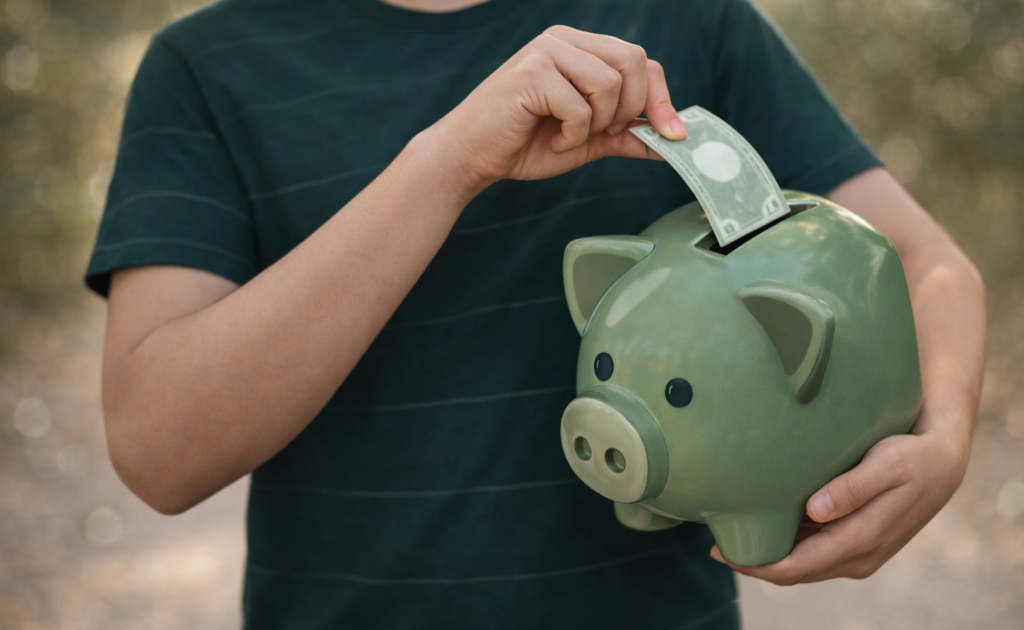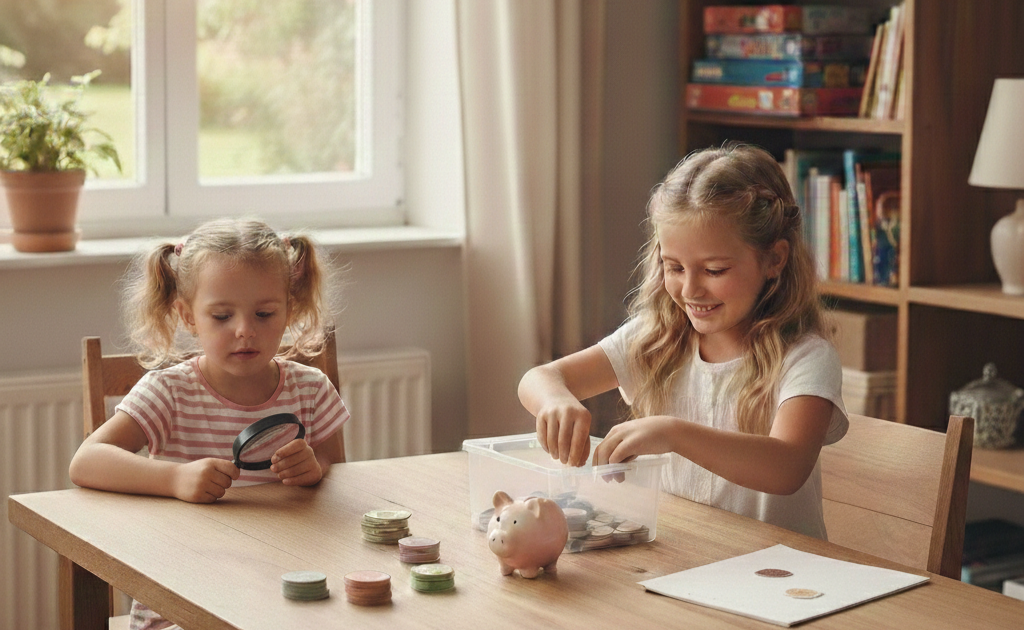As soon as your child can solve their first maths problems, you can consider whether you want to introduce pocket money. This will be the case towards the end of kindergarten or at the latest during lower school.
Pocket money is a good way of teaching children how to handle money and giving them their first experience with their own money at an early age.
Think about the framework in advance. These 3 things are the most important:
1. Recommended amount of pocket money
In principle, the amount of pocket money depends on the family budget and the age of the child. Various Swiss platforms (e.g. budgetberatung.ch, projuventute.ch) recommend giving 3 to 5 francs per week to kindergarten and lower school-age children. From the age of 9, the intervals between payments are extended to 2 weeks. For teenagers aged 12 and over, pocket money should be paid monthly, as it will be in their later professional lives.
Here’s an overview of the guidelines:
- From 6 years of age: CHF 3 per week
- From 7 years of age: CHF 4 per week
- From 8 years of age: CHF 5 per week
- From 9 years of age: CHF 15 every 2 weeks
- From 10 years of age: CHF 18 every 2 weeks
- From 11 years of age: CHF 20 every 2 weeks
- From 12 to 14 years of age: CHF 50 to 70 per month
2. Pay out pocket money reliably
Just as important as an appropriate amount and frequency is that you give your child their pocket money on time and without being asked. It’s best to fix the payment dates in your diary.
Also avoid cancelling your child’s pocket money as a punishment. Think about why you are giving pocket money. Your child should learn how to handle money. They should learn to plan and organise their money. If you can’t count on money reliably, it’s difficult to plan.
3. Pocket money is for wishes and pleasure
Children are free to decide how they want to spend their pocket money. Parents continue to buy the necessities.
It is important that the family rules continue to apply regardless of the pocket money. For example, if the child decides to buy sweets, they are still not allowed to eat them in the evening if no sweets are eaten in the family in the evening.
Personal tips for inspiration
I have done a lot of research on this topic and have been inspired by the website simosackgeld.ch, among others. Here are some tips based on my experience as a mum and primary school teacher that I would like to recommend to other parents.
Saving with 3 cash boxes
My son is 8 years old. He receives his pocket money weekly. He has three transparent cash boxes for storing his money: one for saving, one for spending and one for good deeds, i.e. donations.
At Clanq, we recommend that adults keep several accounts for different areas of expenditure. With the 3 cash boxes, this recommendation becomes a matter of course from an early age.
- Spend: My son can put this money in his wallet at any time and buy himself something with it. He likes to treat himself to a little something in between. That’s why there are usually only a few coins in this purse.
- Saving: He saves for dreams in this cash box. For example, he once bought himself a bright green floorball stick. Gifts of money also go into this box.
- Donations: We collect donations for different projects from holiday to holiday. I always choose 3 fundraising projects that might interest my son and briefly present them to him. The first one he chose was a WWF donation project to save endangered sea turtles. We printed out the picture of the sea turtle and fixed it as the background image in the donation box.

Now that most platforms have updated their recommendations for the amount of pocket money, I too have been prompted to reconsider how much pocket money my son should get. Pro Juventute recommends 5 francs per week plus (individually) a savings contribution. Since we also fill a donation box, I add a small amount to that.
Keeping a record in a playful way
We keep records of the money so that my son learns to control his money. When he was younger, we recorded the coins, but now we just write down the amount.
Since I’ve noticed in everyday life that things that need to be done quickly are more likely to be kept, we currently only keep records of the cash box in which my son has his spending money. We write down how much money is added, but also when he has bought something. This way, he always knows the current amount available.
We count the money that is intended for donations and savings from time to time.
Conclusion: It’s worth giving it some thought
There are various ways to teach your child how to handle their own money. Each family must decide on the appropriate framework for this. In any case, it is important that you as parents think about it and accompany your child.
Here you can find more tips on how children learn to handle money.




